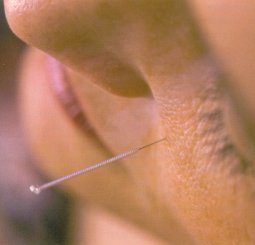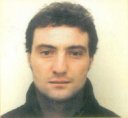Here Christopher Woodward, a practitioner of acupuncture at the Breast Cancer Haven in London, explains the practical use of acupuncture for pain relief, well being, energy improvement and more for people with cancer as three clinical trials involving acupuncture in this past year add to the evidence base of this complementary therapy.
 Do you need to de-stress and revitalise your body? Acupuncture is one of the most popular complementary therapies and, as its been around for more than 2,500 years, and is practised by some 3 million acupuncturists worldwide, its hardly a passing fad. It has even been recognised as an important treatment by the medical world, including in the treatment of the symptoms of cancer.
Do you need to de-stress and revitalise your body? Acupuncture is one of the most popular complementary therapies and, as its been around for more than 2,500 years, and is practised by some 3 million acupuncturists worldwide, its hardly a passing fad. It has even been recognised as an important treatment by the medical world, including in the treatment of the symptoms of cancer.
Acupuncture can help lessen the side-effects of chemotherapy and radiotherapy on the body, boost energy levels and enhance a sense of overall wellbeing.
Importantly, in the last year there have been at least three American Clinical Trials which have not just shown its benefits in pain relief, but have explained what is actually going on. So it is becoming a genuine alternative cancer treatment for cancer pain relief. (Each of the three clinical trials is reviewed in Cancer Watch).
Mention acupuncture to most people and theyll have visions of sharp needles and painful injections, but acupuncture needles are very different to those used in doctors surgeries. They are much finer and more solid than the hollow ones used to pass something into your body and, as The London Haven acupuncturist Christopher Woodward assures, "They dont cut the skin, but tend to push it apart. Its quite rare that an acupuncture point will bleed when you take the needle out." As they are inserted inside a guide tube, many people dont even feel the needles, just the pressure from the tube pressing on the skin. The sensation as qi arrives at the needle can be slightly achy or electrical, but never unmanageable.
There are two main styles of acupuncture practised in the UK. The kind you will receive in a session with a member of the BAcC (British Acupuncture Council) is a holistic approach to health based on thousands of years of developments and refinements in the Far East. An acupuncturists skill lies in his ability to make a traditional diagnosis from a complex pattern of disharmony. Western-style or medical acupuncture is much more recent and mostly practised by doctors and physiotherapists.
Although often described as a means of pain relief, acupuncture is in fact used to treat people with a wide range of illnesses. It focuses on improving the overall wellbeing of the patient rather than the isolated treatment of specific symptoms. According to traditional Chinese philosophy, our health is dependent on the bodys motivating energy - qi - moving in a smooth and balanced way through a series of meridians (channels) beneath the skin.
 Acupuncture can help lessen the side-effects of chemotherapy and radiotherapy on the body
Acupuncture can help lessen the side-effects of chemotherapy and radiotherapy on the body
In China, Yin and Yang are a way of describing the appropriate balance or function of a system, and when the Yin and Yang of the body become unbalanced, illness may result. By inserting fine needles into the meridians, an acupuncturist can stimulate the bodys own healing response and help restore its natural balance. The flow of qi can be disturbed by emotional states, such as anxiety, stress, anger, fear or grief; poor nutrition, weather conditions, hereditary factors, infections, poisons and trauma. The main aim of acupuncture in treating the whole person is to recover the appropriate balance between the physical, emotional and spiritual individual.
In ancient China many local doctors were acupuncturists. People would go along for an acupuncture session at the change of every season - a kind of MOT, if you like. If any of those people subsequently became ill that season, they would receive free treatment until they were better. However if they hadnt gone along at the change of the season they would be charged for each consultation. So, as our mothers always told us, prevention is better than cure.
The Consultation
When you go along to an acupuncturist, the first session will normally take an hour. Chris Woodwards sessions are inclusive, so therell be general advice about lifestyle as well, as the treatment. "We dont really treat diseases, we treat people," he emphasises. Obviously at the Haven he will start with the presenting complaint or symptom e.g.:

I've got breast cancer and am having chemotherapy and suffering with hot flushes, he then goes into a detailed medical history, including family background, followed by questions about diet and lifestyle. Only after all that will he turn his attention to the pulses.
"If I feel that, say, the kidney energy is quite weak I may ask questions around that," explains Chris. "From the Chinese point of view I would ask, Do you suffer lower back pain? Do you have tinnitus? Do you ever feel fearful? Do you ever crave or hate salt or love or hate water?
Apart from the pulses, an acupuncturist will also examine the tongue, face or abdomen. "Theres nothing about a person that is not relevant," says Chris. "Whether its their smell, the hue of their skin, the sound of their voice - its all part of my diagnosis and will be taken into consideration."
The tongue provides a "sort of map of the body" to a trained acupuncturist. Any crack, colour, coating or movement within it is a guide to whats going on (so avoid strong coffee or red wine just before your appointment!). The tip of the tongue represents the heart or the mind, the centre the digestive area, the root the gynae area, and the sides the liver and spleen.
There are about 500 acupuncture points on the body, which are generally in pairs, eg: one on each foot which will both be for part of the liver. In most treatments, four or five pairs of points will be used (eight or 10 little needles), but if someone is very tired it may be appropriate to use one pair for a very gentle acupuncture because too many needles would spread the energy and the focus on the treatment too thinly.
 Meridians generally run from the extremity of the body towards the centre, to an organ
Meridians generally run from the extremity of the body towards the centre, to an organ
Meridians, or acupuncture pathways, generally run from the extremity of the body towards the centre, to an organ. Or they will run from an organ to the extremity such as a toe or finger. "So within the Chinese diagnosis, if an organ system is responsible, say, for a headache, the function of that organ will be treated along the meridian," Chris explains. "Its extremely complicated because what were looking at are patterns not really specifics.
When needles are being inserted, the resulting sensation, as the qi (energy) grasps the needle, is called deqi. Its often a gentle tingling sensation, or a slight distending achy feeling. It can also feel like water flowing, but is not unpleasant.
Acupuncture usually leaves people feeling calm and relaxed. But occasionally you may feel drowsy for a few hours, so go along with a friend, if possible, who can take you home afterwards.
Benefits for Those Living with Cancer
The whole idea of acupuncture is to return the body to a state of harmony and ease. As conventional treatment for most forms of cancer is quite traumatic and invasive there are often side effects. Acupuncture can help with nausea, lack of appetite, lack of energy and memory loss; as well as speeding up recovery and scar healing.
"We all take for granted that ice, water and steam are different energetic forms of H2O," says Chris. "Likewise the body, mind and spirit are different energetic forms of us. If one of these is affected there will, or can be, consequences in the other two and acupuncture considers the whole person.
 The whole idea is to return the body to a state of harmony and ease
The whole idea is to return the body to a state of harmony and ease
"When someone is having chemotherapy or radiotherapy there are often all these intense heat symptoms: hot flushes, migraines, nausea. Everythings at the top of the body. Its like having a bottle of water thats half full from the top. Were trying to bring the energy down, and that can ease agitation.
Friends of friends sometimes doubt the power of acupuncture and ask Chris if it actually works. "Its hilarious," he admits. "Do they think Id spend my life doing something that doesnt work? I agree that it still seems quite absurd that you stick a needle in a foot or leg and take away someones long-term chronic pain, but that can be the effect of balancing the physical, mental and spiritual.
Its very rewarding helping people with cancer, because often a lot of positive things can come out of a bad experience. Theres a huge spiritual awakening after any crisis. Know thyself is the basis of all philosophy, and religions, and the sense of separation is the basis of all suffering really. The best job acupuncturists can ever do is to hear what the whole of the patient is saying to us and to be a very clear mirror to the patients we see because, after all, theyre coming to see themselves - not us."
The Haven Trust
 Christopher Woodward was drawn to acupuncture through his interest in internal martial arts. As he practised tai chi, which loosens the body and opens up energy flow, or what the Chinese call your "qi , or chi, he became more interested in complementary therapies, like acupuncture, which work with qi.
Christopher Woodward was drawn to acupuncture through his interest in internal martial arts. As he practised tai chi, which loosens the body and opens up energy flow, or what the Chinese call your "qi , or chi, he became more interested in complementary therapies, like acupuncture, which work with qi.
He also practises reiki and cranial sacral therapy. Christopher is a member of the BAcC (British Acupuncture Council), the biggest, and one of the oldest, regulatory bodies in the country and has been a fully qualified acupuncturist for five years.
He works part time at national breast cancer charity, The Haven Trust. Anyone with breast cancer can attend The London Haven free of charge, and can access complementary therapies with the help of a nurse and therapy assessor.
To find out more about The London Haven, please call 020 7384 0099. If you would like to find out about acupuncture sessions for any other condition, contact Christopher at The Traditional Acupuncture Centre, on Tuesdays and Thursdays between Barn and 6pm, on 020 7928 8333.
To find out about good acupuncturists in your area contact the BAcC on 020 8735 0400 or log onto their website www.acupuncture.org.uk.
Reference
Go to: Acupuncture, Traditional Chinese Medicine and cancer, update